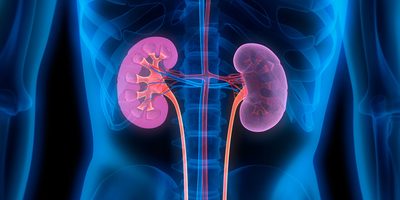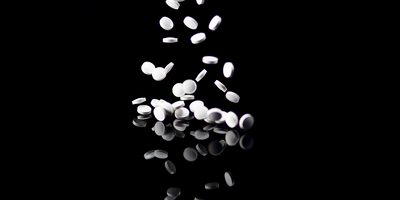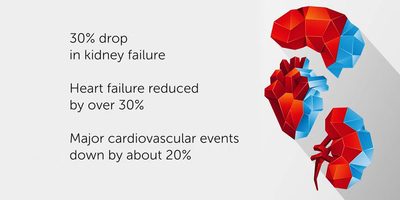
Combined treatment reduces kidney disease risk in diabetes
A combination of two blood pressure lowering treatments has significantly reduced the risk of kidney disease among patients with type 2 diabetes. The findings, reported by The George Institute for Global Health reveal that blood pressure lowering is beneficial to all patients with diabetes, even for patients with normal blood pressure levels.
An estimated 250 million people are living with diabetes around the world. Kidney disease is a common (more than half of type 2 diabetes patients develop renal impairment) and devastating complication of diabetes - up to 20% of people with diabetes die of renal failure.
"Our research demonstrated that lowering blood pressure with an ACE inhibitor/diuretic combination reduces the risk of kidney complications by 20%, and even resolves some early manifestations of kidney disease in people with diabetes, regardless of whether their blood pressure is normal or elevated," said co-author, Dr Vlado Perkovic from The George Institute.
The key findings of the paper, published in the Journal of the American Society of Nephrology, shows that this treatment has wide benefits for all patients with type 2 diabetes. "For all people with diabetes, reducing their risk of kidney disease is imperative. Individuals who develop kidney disease are at significantly increased risk of developing cardiovascular complications, which is the major cause of death in these patients," added Dr Perkovic.
The Action in Diabetes and Vascular Disease (ADVANCE) study was initiated and designed by Australia’s George Institute and involved a group of independent medical researchers from 20 countries worldwide. This new analysis aimed to examine the effects of blood pressure lowering on kidney disease in people with diabetes and a broad range of blood pressure levels.
ADVANCE involved 11,140 patients with type 2 diabetes who were treated and followed up for five years. One group received a combination of two antihypertensive (blood pressure-lowering) drugs: the angiotensin-converting enzyme (ACE) inhibitor perindopril and the diuretic drug indapamide. The other group received inactive placebos.













